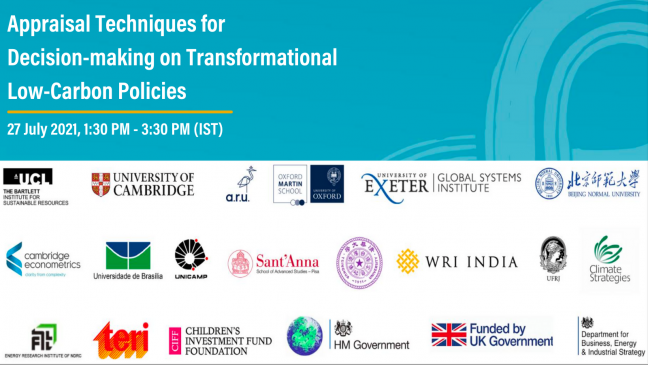Appraisal Techniques for Decision-making on Transformational Low-Carbon Policies

The Economics of Energy Innovation & System Transition (EEIST) is a research consortium that includes WRI India, University of Exeter, University of Oxford, University of Cambridge, University College London, Anglia Ruskin University, Cambridge Econometrics, Climate Strategies, and The Energy and Resources Institute (TERI). It is supported by the UK Government’s Department for Business, Energy and Industrial Strategy (BEIS) and the Children’s Investment Fund Foundation (CIFF).
EEIST has organised a workshop on “Appraisal Techniques for Decision-making on Transformational Low-Carbon Policies”. The EEIST project is developing complexity-based economic models to support government decision making around low-carbon innovation and technological change. It aims to demonstrate the benefits of moving beyond cost-benefit analysis for policy decisions in situations of transformational change.
Speakers:
- Michael Grubb, University College London, highlighting some examples of technologies which have seen dramatic improvements in costs and efficiency that were not foreseen by analysts.
- Ashwini Hingne, Manager, Climate, WRI India, on the economic rate of return estimates for renewable energy technologies in three Indian states – Maharashtra, Jharkhand, and Assam.
- Unnada Chewpreecha, Cambridge Econometrics, on their E3ME dynamic systems model and the distributional implications of low carbon actions in India, including for employment and just transition.
- Dr Ritu Mathur, TERI (Moderator)

